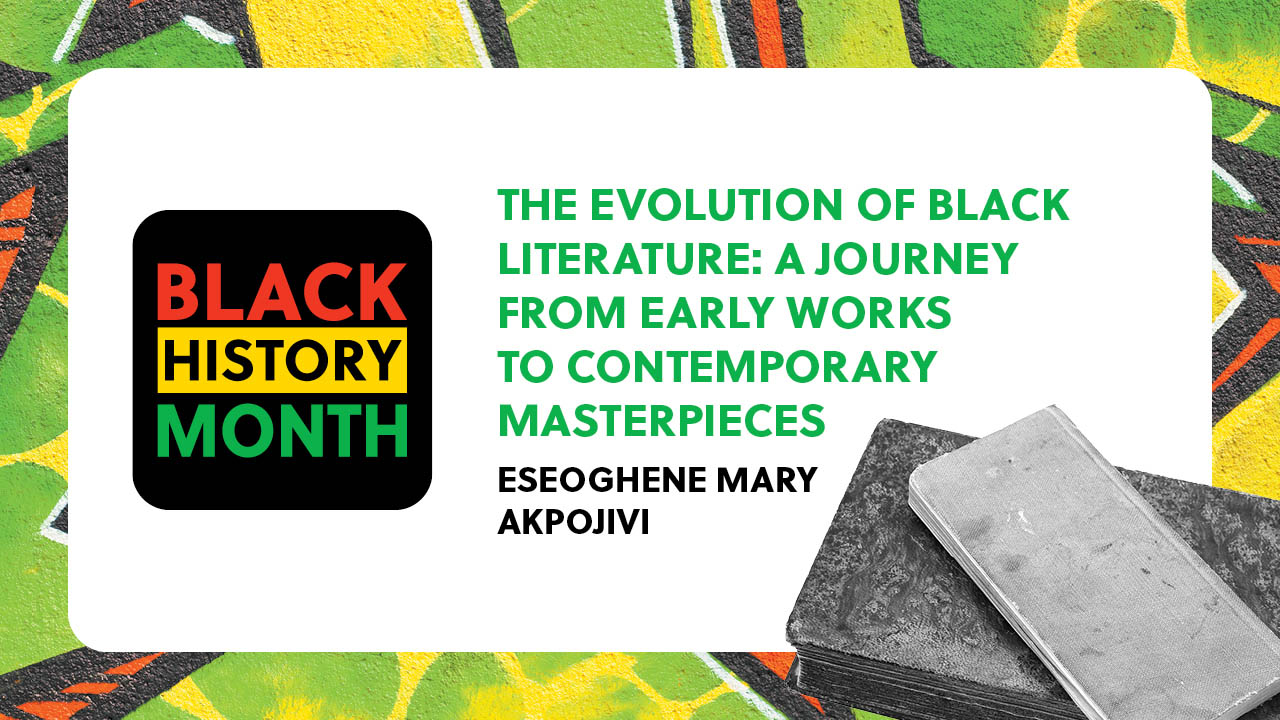The evolution of Black literature: a journey from early works to contemporary masterpieces
 CREDIT: INBJ
CREDIT: INBJThis journey through Black literature spans centuries, reflecting the diverse experiences, struggles, and triumphs of the Black community. The evolution of Black literature is not only a testament to the resilience and creativity of Black authors but also a mirror reflecting the societal changes and progress in the broader context.
The roots of Black literature trace back to the powerful narratives of enslaved individuals. Works such as Narrative of the Life of Frederick Douglass and Incidents in the Life of a Slave Girl provided a voice to the voiceless, articulating the struggles for freedom, identity, and the quest for human dignity.
The early 20th century witnessed the flourishing of Black literature during the Harlem Renaissance. Writers like Langston Hughes, Zora Neale Hurston, and Claude McKay, through their poetry and prose, celebrated Black culture, grappled with racial identity, and laid the groundwork for a distinctive African American literary tradition.
As the Civil Rights Movement gained momentum, Black authors such as James Baldwin, Maya Angelou, and Amiri Baraka wielded their pens as powerful tools for social change. Their works delved into the complexities of racial injustice, personal struggles, and the collective fight for equality.
The Black Arts Movement of the 1960s and 1970s marked the Black Arts Movement, a period of cultural and artistic renaissance. Writers like Nikki Giovanni, Sonia Sanchez, and Ishmael Reed embraced a new consciousness, infusing their literature with political activism, cultural pride, and a commitment to redefining the narrative of Black identity.
The post-Civil Rights era brought forth a tapestry of diverse voices in Black literature. The works of Toni Morrison, Alice Walker, and August Wilson explored themes of intersectionality, cultural heritage, and the intricate nuances of the Black experience, fostering a more inclusive literary landscape.
In the contemporary literary scene, authors like Chimamanda Ngozi Adichie, Ta-Nehisi Coates, and Jesmyn Ward transcend national borders to address global issues. Their narratives navigate the complexities of identity, immigration, and the ongoing struggle for racial equality in an increasingly interconnected world.
Throughout its evolution, Black literature has consistently grappled with recurring themes such as identity, the impact of history on the present, and the incorporation of vernacular and oral traditions. The evolving styles within Black literature reflect not only the changes in artistic expression but also the adaptability of Black writers in responding to the ever-shifting socio-political landscape.
Black literature has played a pivotal role in shaping societal discourse, challenging stereotypes, and contributing to a more inclusive education. By offering diverse perspectives, it continues to foster understanding and dismantle prejudices, paving the way for a more comprehensive and equitable curriculum.
Black literature serves as a testament to the enduring power of storytelling in challenging societal norms, fostering empathy, and inspiring change. Black authors have used their craft to illuminate, challenge, and inspire. As we traverse this literary odyssey, it becomes clear that Black literature is not just a reflection of history, it is a dynamic force shaping the cultural narratives of the past, present, and the boundless possibilities of the future.















